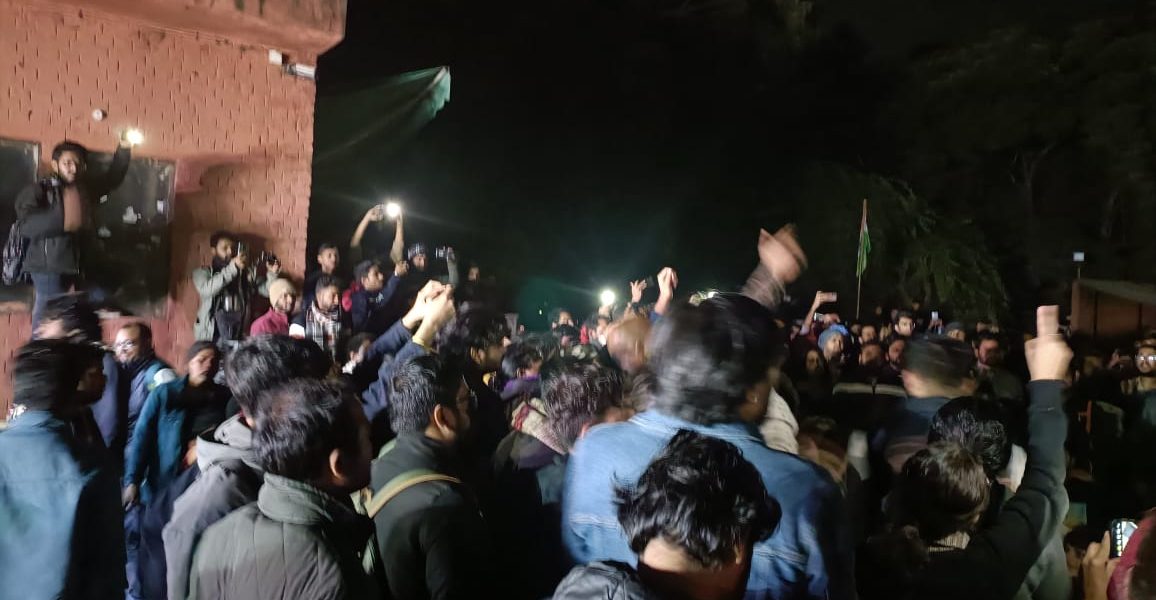New Delhi: Groups of students at the Jawaharlal Nehru University continued with their screening of the first episode of the BBC’s documentary series on Narendra Modi on Tuesday night, despite an electricity blackout allegedly created by the administration and stone-pelting allegedly by ABVP members.
Because of the blackout and the fact that the university refused to grant permission for the screening, groups of students watched the episode on different laptops in the students’ union office, Times of India reported.
The power was restored only after midnight.
On Monday, the administration had issued a circular telling students to cancel the screening as it would “disturb peace and harmony” in the university.
JNU asks to cancel the screening of the documentary “India: The Modi Question” scheduled for 24th Jan by a group of students stating that “such an unauthorised activity may disturb peace & harmony in the University.”. pic.twitter.com/yQwDah9xx7
— ANI (@ANI) January 23, 2023
An official in the Union education ministry claimed to Indian Express that the power failure had nothing to do with the screening: “We have been told by the JNU V-C and the university Registrar that it’s a massive power failure which has affected one-third of the campus. There is no deliberate attempt to cut power.”
After the power and internet were cut off and students were allegedly attacked with stones, students marched in protest to the main gate of the campus. “Students of ABVP pelted stones at us,” N. Sai Balaji, former president of the students’ union, said according to NDTV. “To ensure the safety of students we have come towards the main gate. We want urgent restoration of electricity. We will not move from the gate till the time electricity is restored. The police are not responding to our calls.”
Later at night, students also marched to the police station to file a complaint on the stone-pelting.
Delhi | ABVP pelted stones, no step by admin yet. We almost completed the film’s screening. Our priority is that electricity should be restored. We’ll file FIR: JUNSU President Aishe Gosh pic.twitter.com/pcUBTQdnLU
— ANI (@ANI) January 24, 2023
“We believe that this country stands for democracy and every form of dissent is celebrated here. By taking this stance and disconnecting power supply, they chose to break our spirit and are trying to finish dissent. If you think that you’ll end JNU’s idea of dissent then that’s not what’s going to happen,” student body president Aishe Ghosh said to the gathered students.
Earlier on Tuesday, students at the University of Hyderabad had screened the documentary.
The first episode of the BBC’s documentary cited a UK government report that had held Modi, then the chief minister of Gujarat, directly responsible for the 2002 riots. The second episode, aired last night in the UK, looks at the Modi government’s policies post 2019 and the effect on Indian Muslims.
The Union government had ordered social media and video sharing platforms to remove links to the first episode, and the Ministry of External Affairs had called the documentary a “propaganda piece designed to push a particular discredited narrative”. This gag order had led to widespread criticism, including from opposition parties.
This article was first published on The Wire.

